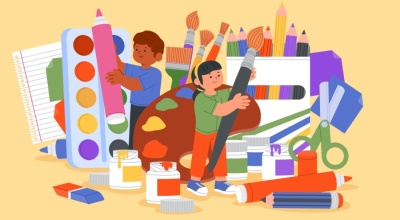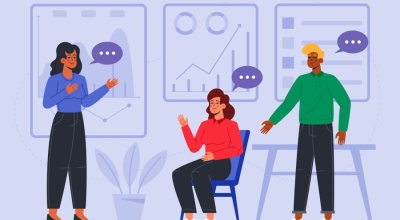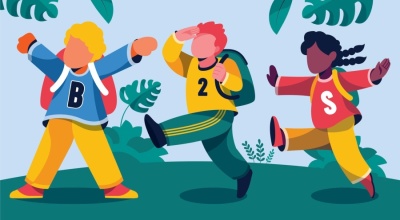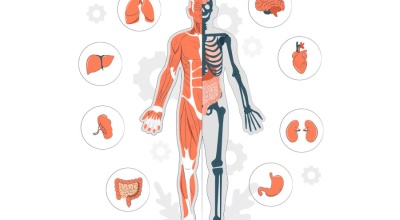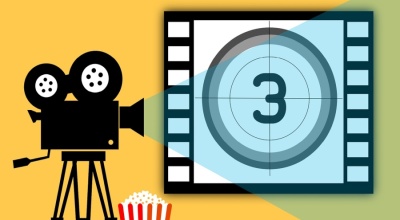At a time when the Earth's resources are being depleted faster than they can be replenished, adopting and promoting more sustainable ways of living that are in harmony with our communities and nature has never been more crucial. This guidebook supports young people to become advocates and agents of change for sustainable lifestyles in their respective communities around the world.
UNEP and UNESCO Guidebook on Climate Change and Lifestyles aims to answer the questions that young people aged from 15 to 24 may have, and to inspire them in their daily lives.
 YouthXchange Guidebook Series Climate Change and Lifestyles
YouthXchange Guidebook Series Climate Change and Lifestyles
The world's youth will have a significant role to play if we are to bring about the widespread behavioral change needed to shift towards more sustainable lifestyles and consumption habits. It is important for young people to understand that behind over-consumption lies increased exploitation of resources, rising poverty, widening inequalities and persistent conflicts, all of which will worsen with climate change and eventually will minimize their opportunities for a better and sustainable future.
Video Playlist: Talking Trash and Taking Action
They Dumped 2 Million Tires Into The Ocean. Fifty Years Later You Won’t Believe the Results!
Find out why they dumped 2 millions tires into the ocean... and what...
Find out why they dumped 2 millions tires into the ocean... and what happened 50 years later!
Suggest a topic here to be turned into a video: http://bit.ly/2kwqhuh
Subscribe for more! ...► https://goo.gl/pgcoq1 ◄
Stay updated ► https://goo.gl/JyGcTt https://goo.gl/5c8dzr ◄
For copyright queries or general inquiries please get in touch:
Legal Stuff.
Unless otherwise created by BeAmazed, licenses have been obtained for images/footage in the video from the following sources: https://pastebin.com/sDha7AGa
What Is Marine Debris? | A Cartoon Crash Course
Marine debris is all the manmade stuff that ends up in the...
Marine debris is all the manmade stuff that ends up in the oceans—from soda cans and plastic bottles to sunken ships. There’s marine debris in every ocean on Earth, and ...all that junk can kill and injure sea life, impede navigation, leach chemicals, and even end up in our food.
Nationally syndicated cartoonist Jim Toomey, creator of Sherman's Lagoon, has joined forces with The Pew Charitable Trusts to illustrate "marine debris" and other terms associated with our oceans.
Watch the full ocean terms video series: http://www.pewtrusts.org/en/research-and-analysis/collections/2016/01/cartoon-crash-course-a-visual-glossary-of-ocean-terminology
*TRANSCRIPT*
You know that feeling of having too much stuff – gadgets, loose socks, maybe a couple of abandoned fishing vessels? Now imagine that multiplied by, oh, one trillion, and you start to understand how the ocean must feel about marine debris.
Marine debris is all the manmade stuff that ends up in the ocean, from soda cans, plastic bottles and the sun hat you lost last summer--to abandoned fishing gear, entire vessels that are sunken or marooned. Whether it got there on purpose or by accident, and even if that hat happens to fit a certain octopus just perfectly, it still qualifies as marine debris.
Scientists say there are 5 and a quarter trillion pieces of plastic alone in the ocean, and that’s only part of the marine debris problem. All that junk is killing and injuring sea life, impeding navigation, leaching chemicals, and even ending up in our food.
Plastics, for example, break down into tiny particles that resemble fish eggs. Fish consume those particles, we eat the fish and, well, you know.
Marine debris is present in every ocean, carried far and wide by currents and wind.
People – and probably some fish – are working on ways to clean all this stuff up but, as yet, nobody has found a solution… or your hat, for that matter.
Pewtrusts.org/cartooncrashcourse
Plastic Wars (full documentary) | FRONTLINE
Have efforts to solve the plastic pollution problem made it worse? Go...
Have efforts to solve the plastic pollution problem made it worse? Go inside the battle over plastics, recycling and what’s at stake.
This journalism is made possible by viewers like you. ...Support your local PBS station here: http://www.pbs.org/donate
Love FRONTLINE? Find us on the PBS Video App where there are more than 250 FRONTLINE documentaries available for you to watch any time: https://to.pbs.org/FLVideoApp
Subscribe on YouTube: http://bit.ly/1BycsJW
#RecyclingDocumentary #PlasticWars #frontlinePBS
Despite efforts spreading across America to reduce the use of plastic and the crisis of ocean pollution growing, the plastics industry is rapidly scaling up new production and promoting a familiar solution: recycling. But it’s estimated that no more than 10% of plastic produced has ever been recycled. The documentary “Plastic Wars,” from FRONTLINE and NPR, reveals how plastic makers for decades have publicly promoted recycling, despite privately expressing doubts that widespread plastic recycling would ever be economically viable.
Instagram: https://www.instagram.com/frontlinepbs
Twitter: https://twitter.com/frontlinepbs
Facebook: https://www.facebook.com/frontline
FRONTLINE is streaming more than 200 documentaries online, for free, here: http://to.pbs.org/hxRvQP
Funding for FRONTLINE is provided through the support of PBS viewers and by the Corporation for Public Broadcasting. Major funding for FRONTLINE is provided by the John D. and Catherine T. MacArthur Foundation and the Ford Foundation. Additional funding is provided by the Abrams Foundation, the Park Foundation, The John and Helen Glessner Family Trust, the Heising-Simons Foundation, and the FRONTLINE Journalism Fund with major support from Jon and Jo Ann Hagler on behalf of the Jon L. Hagler Foundation.
The Devil We Know
The Devil We Know is a investigative documentary of health hazards from...
The Devil We Know is a investigative documentary of health hazards from Teflon. Premier includes footage of public hearings, news reports and corporate ads, along with input from scientists and ...activists.
Why BPA Free is not better - 2 Minutes to Health
In this episode of 2 Minutes to Health, Katherine explains why BPA free...
In this episode of 2 Minutes to Health, Katherine explains why BPA free plastic is not actually any healthier and what you can use instead.
Dr. Shanna Swan on How Plastics in Food are Affecting Our Hormone Levels
Taken from JRE #1638 w/Dr. Shanna...
Taken from JRE #1638 w/Dr. Shanna Swan:
https://open.spotify.com/episode/6pLW2tMx4Kw5qaeAcxj0Lj?si=e1acc4d0ae494d6b
What really happens to the plastic you throw away - Emma Bryce
View full lesson:...
View full lesson: http://ed.ted.com/lessons/what-really-happens-to-the-plastic-you-throw-away-emma-bryce
We’ve all been told that we should recycle plastic bottles and containers. But what actually happens to the plastic if we just throw it away? Emma Bryce ...traces the life cycles of three different plastic bottles, shedding light on the dangers these disposables present to our world.
Lesson by Emma Bryce, animation by Sharon Colman.
Waste Age: can we reuse, repair, and remake?
We are living in the age of waste. Is design the answer to leaving our...
We are living in the age of waste. Is design the answer to leaving our throwaway culture behind?
Museum of Electronic Waste (2020) Online Presentation by Han Wu
What will happen to future cities if we take commodities such as...
What will happen to future cities if we take commodities such as garbage collection and recycling for granted? Movies like Wall-E makes me wonder if that alternative reality portrayed in ...the film is actually turning into our own reality. With some research, I found out that one of the fastest growing stream of waste that causes these excessive waste we produce is actually e-waste and Australia is ranked one of the highest disposers of that e-waste, contributing to ranking 4th in the whole world.
Growing up in a third world country, I’ve personally witnessed the direct impact of improper disposal of waste. Most if not all of the less fortunate people in my country lives in poverty and mostly on these waste dump sites. Knowing these negative impacts, it prompt and inspired me to design a museum project that can create social awareness on the dark side of e-waste by educating the visitors through a narrated spatial journey and allowing them to physically experience the real impact of e-waste in the world.
MSD Studio 39 - Remember Architecture
Studio Leaders: Shervin Jaberzadeh, Alison Pedder and Greg Gong of Denton Corker Marshal
Produced by:
Han Wu | 1038456
Instagram:
https://www.instagram.com/manhaann
Website:
https://www.hanwudesign.com
Video Clip used:
Verge Science
https://www.youtube.com/watch?v=vufLW4xOsS4
Programs:
Revit 3D
Rhino 3D
V-ray
Lumion 10
Final Cut Pro X
Master of Architecture Studio CDE
Melbourne School of Design
University of Melbourne
The Plastic Problem - A PBS NewsHour Documentary
By 2050 there will be more plastic than fish in the oceans. It’s an...
By 2050 there will be more plastic than fish in the oceans. It’s an environmental crisis that’s been in the making for nearly 70 years. Plastic pollution is now considered ...one of the largest environmental threats facing humans and animals globally.
In “The Plastic Problem: PBS NewsHour Presents”, Amna Nawaz and her PBS NewsHour colleagues look at this now ubiquitous material and how it’s impacting the world, why it’s become so prevalent, what’s being done to mitigate its use, and what potential alternatives or solutions are out there. This hour-long program travels from Boston to Seattle, Costa Rica to Easter Island to bring the global scale of the problem to light.
Stream your PBS favorites with the PBS app: https://to.pbs.org/2Jb8twG
Find more from PBS NewsHour at https://www.pbs.org/newshour
Subscribe to our YouTube channel: https://bit.ly/2HfsCD6
Follow us:
Facebook: http://www.pbs.org/newshour
Twitter: http://www.twitter.com/newshour
Instagram: http://www.instagram.com/newshour
Snapchat: @pbsnews
Subscribe:
PBS NewsHour podcasts: https://www.pbs.org/newshour/podcasts
Newsletters: https://www.pbs.org/newshour/subscribe
Plastics Industry Insiders Reveal the Truth About Recycling | "Plastic Wars" | FRONTLINE + NPR
Three top executives who represented the plastics industry at a pivotal...
Three top executives who represented the plastics industry at a pivotal moment shed new light on the industry’s efforts to overcome growing concern about plastic waste by pushing recycling -- ...despite the fact that "there was never an enthusiastic belief that recycling was ultimately going to work in a significant way."
Subscribe on YouTube: http://bit.ly/1BycsJW
Those are the words of Lewis Freeman, former VP of government affairs for what was then the industry’s chief lobbying group, the Society of the Plastics Industry, in the new FRONTLINE and NPR documentary, "Plastic Wars."
The industry would publicly promote recycling as the solution to the waste crisis — despite internal doubts, from almost the beginning, that widespread plastic recycling could ever be economically viable.
The strategy was simple: “If the public thinks the recycling is working, then they’re not going to be as concerned about the environment,” says Larry Thomas, who formerly headed the SPI.
To date, it's estimated that no more than 10 percent of plastic produced has ever been recycled.
For the full story, watch "Plastic Wars," a joint investigation from FRONTLINE and NPR, starting Mar. 31: https://to.pbs.org/2UtRWv5
Instagram: https://www.instagram.com/frontlinepbs
Twitter: https://twitter.com/frontlinepbs
Facebook: https://www.facebook.com/frontline
FRONTLINE is streaming more than 200 documentaries online, for free, here: http://to.pbs.org/hxRvQP
Funding for FRONTLINE is provided through the support of PBS viewers and by the Corporation for Public Broadcasting. Major funding for FRONTLINE is provided by the John D. and Catherine T. MacArthur Foundation and the Ford Foundation. Additional funding is provided by the Abrams Foundation, the Park Foundation, The John and Helen Glessner Family Trust, and the FRONTLINE Journalism Fund with major support from Jon and Jo Ann Hagler on behalf of the Jon L. Hagler Foundation.
They Dumped 2 Million Tires Into The Ocean. Fifty Years Later You Won’t Believe the Results!
Find out why they dumped 2 millions tires into the ocean... and what happened 50 years later!
Suggest a topic here to be turned into a video: http://bit.ly/2kwqhuh
Subscribe for more! ...► https://goo.gl/pgcoq1 ◄
Stay updated ► https://goo.gl/JyGcTt https://goo.gl/5c8dzr ◄
For copyright queries or general inquiries please get in touch:
Legal Stuff.
Unless otherwise created by BeAmazed, licenses have been obtained for images/footage in the video from the following sources: https://pastebin.com/sDha7AGa













